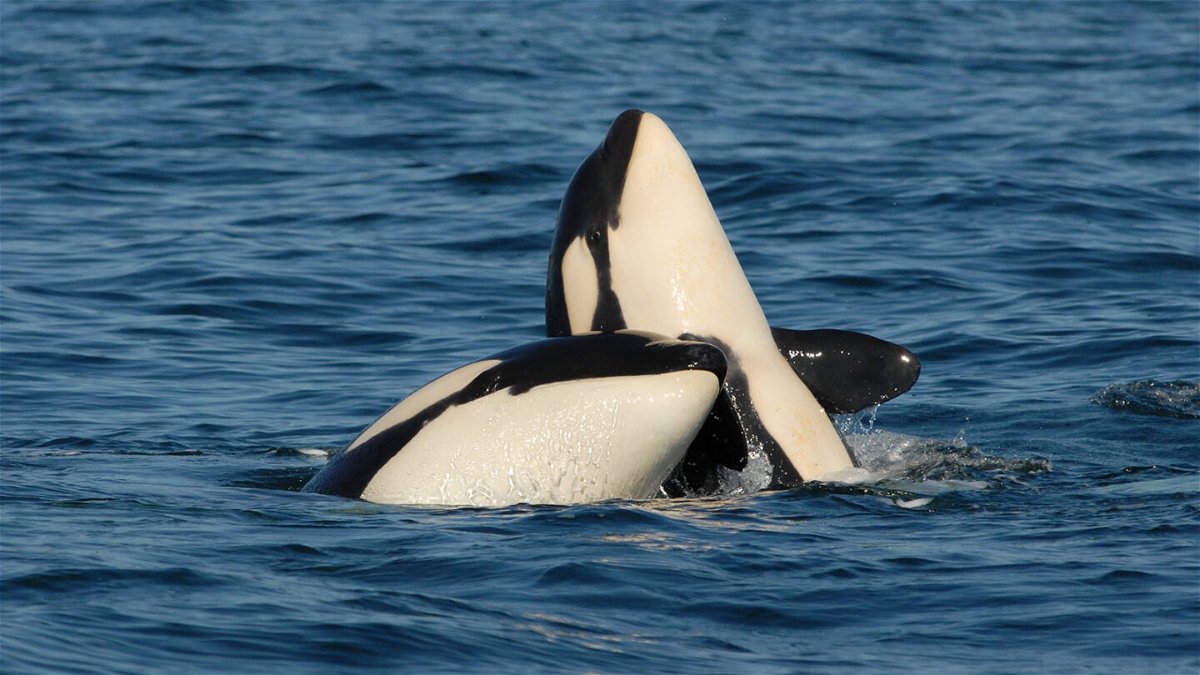Orca mothers forgo having more offspring to look after full-grown sons

Female whales are reducing the likelihood of more offspring by caring for their adult sons
By Lianne Kolirin, CNN
It’s no surprise that parenthood can be demanding and sacrifices are often made for the sake of offspring. But for female killer whales, the role can be particularly challenging.
New research suggests that female orcas might be forgoing having any more offspring because of their sons — even when they’re fully grown.
The research, published Wednesday in the journal Current Biology, focused on a group of orcas known as the “southern resident” population, off the coast of Washington state and British Columbia.
The Center for Whale Research, which was involved in the study, has been monitoring the group since 1976.
The species is unusual in that males and females stay with their mothers for life. However, the “cost” of a mother’s care is bigger in the case of sons.
Michael N. Weiss, research director of the center and a postdoctoral research associate at the University of Exeter, said in a press release: “We’ve known for over a decade that adult male killer whales relied on their mothers to keep them alive, but it had never been clear whether mothers pay a cost to do so.”
The data revealed “a strong negative correlation between females’ number of surviving weaned sons and their annual probability of producing a viable calf,” according to a press release. And the outcome remained the same whatever age the son was.
“The magnitude of the cost that females take on to care for their weaned sons was really surprising,” said Weiss. “While there’s some uncertainty, our best estimate is that each additional surviving son cuts a female’s chances of having a new calf in a given year by more than 50%. This is a huge cost to taking care of [adult] sons.”
Food sharing
Researchers do not know why female orcas are less likely to reproduce in such cases, but they suspect that sharing their food with their fully-grown sons may mean mothers are having to go with less.
Sam Ellis, an animal behavior researcher at Exeter University who co-authored the paper, told CNN Thursday that the nature of the mother’s care largely revolves around their diet of Chinook salmon.
“Really key to this form of care is food sharing,” he explained. “We think a lot of the care is physically providing food to their adult sons,” he said, though they also lead them to the source of nutrition.
“Having a daughter doesn’t affect your chance of reproducing again but having a son of any age is having a negative impact on the mother’s chance of reproducing,” said Ellis.
This finding is highly unusual, according to the team.
“One big take-away is further evidence for how special (and maybe unique) the mother-son bond in killer whales is,” Weiss said.
Ellis added: “There’s lots of examples [in mammals] of maternal care and maternal investment in young offspring. But in all examples, where it has been studied so far, once the offspring reaches maturity, that investment seems to stop.”
“We know that sons whose mothers die have a really high probability of dying in the next year,” he said, adding that while female orcas can live to 80, males are “very lucky to reach 40.”
The southern residents are critically endangered, so the study could have important implications, researchers said.
Ellis said the team wants to look more extensively into the long-term effects the findings might have on orca whale populations.
Luke Rendell, a reader in biology at St Andrews University in Scotland, told CNN the study, which he was not involved in, was “fascinating.”
“It opens a new window … [into] the way that the evolutionary dance between the interests of individuals and genes is constantly interacting with ecology and sociality.
“Many will smile at the jokes about needy sons but also, I hope, reflect on whether the parallels go deeper in this long-lived and highly social mammal. These insights are only possible through dedicated long-term study that are often undervalued by research funders.”
The-CNN-Wire
™ & © 2023 Cable News Network, Inc., a Warner Bros. Discovery Company. All rights reserved.